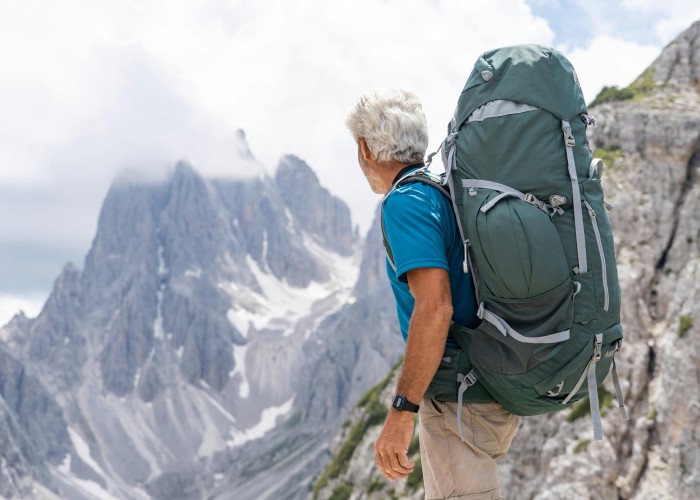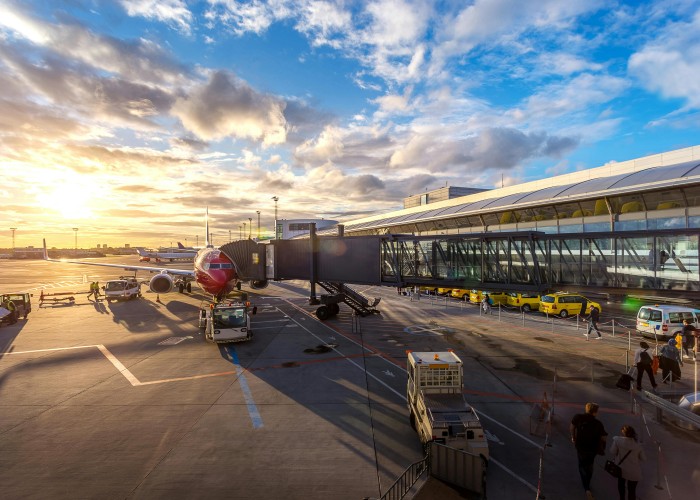Traveling through the Alpine countries is a dream for many seniors seeking scenic vistas, peaceful villages, and crisp mountain air. From Switzerland to Austria and parts of Italy and France, the Alps offer accessible charm—if you plan carefully. I’m sharing this guide not as a tour organizer, but as someone passionate about travel, featured on SWITZERLAND TOUR PACKAGE blog. You can read further posts in our blog section, and learn more about our mission on the about page. In this article you’ll find practical tips for seniors visiting Alpine regions, with a focus on comfort, safety, and enjoyment. Senior Travel Tips for Visiting Alpine Countries.
1. Choose Accessible Transport and Routes
The Swiss and other Alpine rail systems are world-class when it comes to accessibility. Trains such as Glacier Express and Bernina Express offer flat platforms, reserved wheelchair spaces, and generous legroom. Always reserve in advance if you’re traveling with mobility issues. Mountain cog railways like the ones to Jungfraujoch or Mount Rigi are also well‑equipped, with ramps and elevators. If you’re considering a switzerland tour package or a package trip to switzerland, look for routes that avoid steep transfers or long uphill paths. Well-rated stations provide escalators or staff assistance as needed.
2. Take It Slow: Limit Daily Itineraries
When charting your itinerary, aim for one to two main attractions per day. For example, begin with Lucerne’s lakeside promenade and Swiss Museum of Transport, rather than packing in multiple cities. Even if you dream of seeing multiple destinations with a switzerland travel packages mindset, remember legs need rest. Enjoy leisurely lunches, museum cafes, and riverbank strolls. This relaxed rhythm helps minimize fatigue and lets you really absorb each place.
3. Stay in Comfortable Accommodations
Choose hotels or guesthouses with elevators, spacious bathrooms, and ground‑floor rooms when possible. Many properties in Lucerne, Interlaken, Zurich, and Geneva cater to seniors and are part of accessible infrastructure projects. Though this blog isn’t about booking, these simple touches are often included in swiss tour packages or planning notes. When browsing options, look for “ground-floor rooms,” grab bars in showers, and easy walkable routes from station to hotel.
4. Dress Smart for Mountain Weather
Alpine weather can be unpredictable, even in summer. Mornings and evenings may be brisk while midday sun warms the valleys. Pack lightweight, layerable clothing—long-sleeve shirts, fleece or cardigan, and a waterproof jacket. Comfortable walking shoes with good grip are essential, especially around cobbled streets in old town areas like Bern or Zermatt. A walking cane or Nordic poles can provide extra stability on trails like the Rigi Panoramaweg or the Zurich lakeshore. Senior Travel Tips for Visiting Alpine Countries.
5. Focus on Pain‑Free Attraction Choices
Seniors often worry about stairs or steep terrain. Thankfully many top Alpine attractions are wheelchair accessible or gentle on the legs. The Rhine Falls plateau offers smooth paths, glass lifts, and panoramic viewing decks. Jungfraujoch summit is accessible by train and level walkways. The Lucerne Glacier Garden is a flat, open-ground attraction easily reachable from the station. Nature corridors like the Sentier des Lavandes in the Valais region are generally paved or well graded. These are perfect for travelers who prioritize comfort.
6. Active Without Overexertion: Gentle Experiences
Walkable lakeside towns like Montreux, Lucerne or Rapperswil offer benches, cafes, and gentle promenades. Consider scenic lake cruises—like Lake Geneva or Lake Thun—where you can enjoy stunning views seated, with minimal walking. Cheese factory visits, chocolate workshops, or local markets in towns like Interlaken or Lausanne let you rest and enjoy with purpose. Visiting alpine botanical gardens or spa towns like Bad Ragaz helps balance sightseeing with gentle relaxation.
7. Hydration, Diet and Altitude Awareness
At elevations above 2000 m (for example near Jungfraujoch or Zermatt), altitude can affect seniors more than younger travelers. Move slowly, drink plenty of water, and avoid strenuous activity on your first day. Enjoy mild meals and avoid heavy salt if you’re sensitive to altitude. Many mountain restaurants let you rest inside as well as enjoy the view. If you have heart or lung conditions, consult your doctor before ascending high altitudes.
8. Research Seasonal Conditions
Swiss destinations change with seasons. Spring and autumn typically offer fewer crowds and milder weather, making travel smoother. Many seniors prefer visiting in May–June or September–October. Summer can bring long days and higher trail accessibility, but also larger crowds. Winter offers snow‑scenes and thermal spa visits, but requires consideration of cold tolerance and snow‑footing if you plan short walks. Planning your travel season carefully can impact whether a switzerland visit package or switzerland holiday package best fits your comfort level.
9. Join Local Day‑Tours or Small Group Excursions
If independent walking is a concern, local day tours or excursions with small groups offer a comfortable option. Look for guided van tours to places like Grindelwald or the Lauterbrunnen Valley, or riverside tours in Swiss towns. These tours often include hotel pickup and accessible transit. Even without booking a traditional switzerland land tour package, you can plan scenic experiences that suit mobility needs. Tours of abbey sites, cheese dairies or vineyards near Lausanne or Montreux are also well served and typically low-impact. Senior Travel Tips for Visiting Alpine Countries.
10. Keep Emergency and Medical Info Handy
Before you travel, make note of emergency contact numbers, local clinics or pharmacies in your destinations. Carry a list of medications, doctor’s contact info, insurance details, and your personal medical needs. When packing carry-ons, include medications, extra reading glasses, reusable water bottle, and small snacks. Swiss pharmacies are reliable and well stocked—but it’s best to be prepared while on scenic journeys through towns like Lucerne or Interlaken.
Planning with Switzerland Tour Package Insights
Though this blog does not sell packages directly, our goal is to support readers looking at switzerland tour package or switzerland couple package ideas. Your planning might include stops in Zurich, Lucerne, Geneva, and scenic valleys accessible via Swiss rail. Our blog section (SWITZERLAND BLOG) shares practical information—not routes or booking prices—but deeper insights that help you plan, whether you’re comparing swiss trip package options or exploring vacation packages to switzerland. If you’re curious about wider European tours, our discussions around europe tour packages from switzerland or switzerland europe tour ideas help you plot multi-country journeys while staying mindful of senior-friendly travel needs.
Sample 5‑Day Itinerary for Seniors
Day 1: Arrival in Zurich
Settle into your accommodation, walk Bahnhofstrasse gently, relax near Zurich Lake promenade. Evening visit to a local restaurant with seating views.
Day 2: Zurich to Lucerne
Short train ride with minimal transfers. Visit the Swiss Museum of Transport, have lunch lakeside, and explore Chapel Bridge with lift assistance if needed.
Day 3: Trip to Mount Rigi or Titlis
Take a scenic cog railway or gondola. Enjoy panoramic views from accessible lookout platforms, with café rest stops.
Day 4: Rhine Falls Day Trip
From Lucerne or Zurich, travel to Rhine Falls. Walk to viewing terraces and ride accessible boat platforms near Schloss Laufen.
Day 5: In Town Leisure Day
In Lucerne, explore botanical gardens, local markets, or take a short boat cruise. Fill your afternoon with Swiss chocolate tasting or relaxing at a lakeside café.
Packing Checklist for Senior Travelers
- Comfortable walking shoes with grippy soles
- Layered clothing for changing mountain weather
- Medications with prescriptions
- Lightweight cane or folding walking stick if needed
- Reusable water bottle with built-in filter
- Small day pack with tissues, snacks, and emergency info
- Portable charger for phone or e-reader
- Sunglasses, hat, sunscreen, lip balm (UV can be stronger at elevation)
Health and Insurance Considerations
If you’re older, consider travel insurance that includes medical assistance and trip delay coverage. Swiss healthcare is excellent but costly if not insured. If you have mobility limitations, inquire about mobility aid rentals or local clinics in advance. Sana‑based travel plans with extra buffer days—especially before ascending high-altitude excursions—help manage fatigue better. Research accessible travel ratings for your destinations in advance, so you can make decisions with clarity.
Final Thoughts
Exploring Switzerland and Alpine regions doesn’t need to be rushed or strenuous. With proper planning, senior travelers can enjoy mountain panoramas, peaceful lakeside towns, and cultural attractions—without compromise. Whether you’re imagining a relaxing switzerland land tour package itinerary or researching travel costs (trip to switzerland cost), this guide outlines essentials to make it successful and enjoyable. Senior Travel Tips for Visiting Alpine Countries.






Leave a Reply